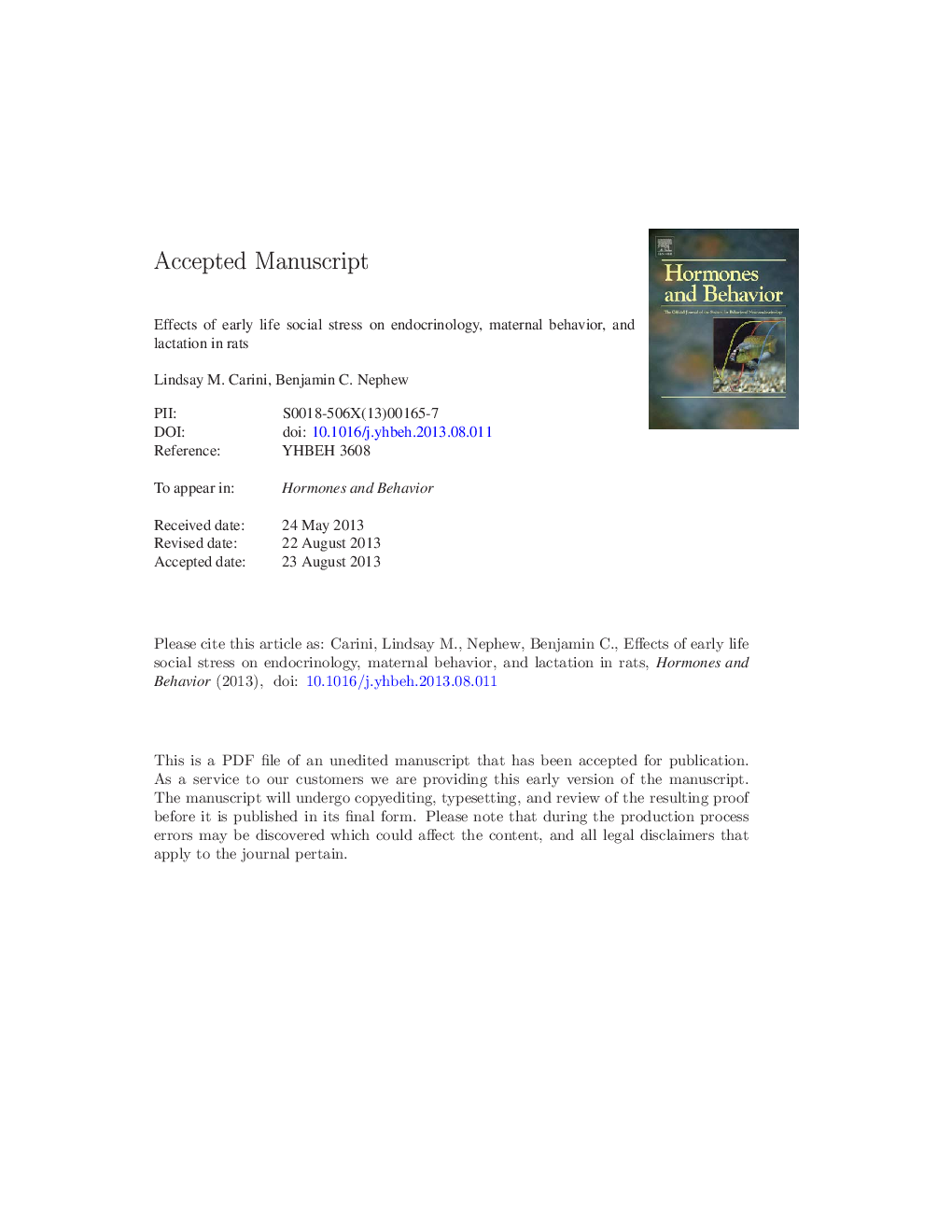| Article ID | Journal | Published Year | Pages | File Type |
|---|---|---|---|---|
| 10300894 | Hormones and Behavior | 2013 | 39 Pages |
Abstract
Exposure of female pups to early life CSS resulted in persistent alterations in maternal endocrinology at the end of lactation (attenuated prolactin and elevated corticosterone), depressed maternal care and aggression, increased restlessness and anxiety-related behavior, impaired lactation, and decreased saccharin preference. The endocrine and behavioral data indicate that early life CSS has long-term effects which are similar to changes seen in clinical populations of depressed mothers and provide support for the use of the chronic social stress paradigm as an ethologically relevant rodent model for maternal disorders such as postpartum depression and anxiety.
Related Topics
Life Sciences
Biochemistry, Genetics and Molecular Biology
Endocrinology
Authors
Lindsay M. Carini, Benjamin C. Nephew,
